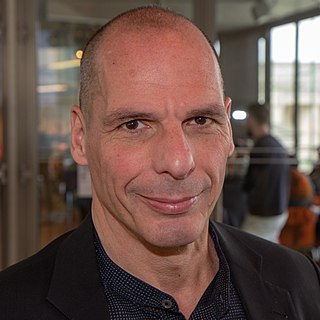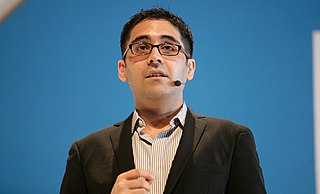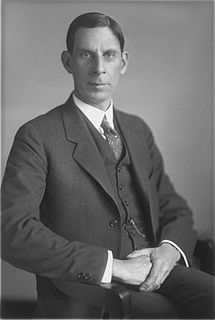Top 1200 Economic Value Quotes & Sayings - Page 3
Explore popular Economic Value quotes.
Last updated on November 8, 2024.
Government by the people for the people becomes meaningless unless it includes major economic decision-making by the people for the people. This is not simply an economic matter. In essence it is an ethical and moral question, for whoever takes the important economic decisions in society ipso facto determines the social priorities of that society.
One of the frequent blind spots for economic libertarians, speaking as one who has personally dealt with this log in the eye, is a tendency to allow principles of how economies work and the beauty of trade to make us ignore perceived threats animating people who value more than just the power to buy and sell.
The ultimate consequences of the individualist spirit in economic life are those which you yourselves, Venerable Brethren and Beloved Children, see and deplore: Free competition has destroyed itself; economic dictatorship has supplanted the free market; unbridled ambition for power has likewise succeeded greed for gain; all economic life has become tragically hard, inexorable, and cruel.
If in the human economy, a squash in the field is worth more than a bushel of soil, that does not mean that food is more valuable than soil; it means simply that we do not know how to value the soil. In its complexity and its potential longevity, the soil exceeds our comprehension; we do not know how to place a just market value on it, and we will never learn how. Its value is inestimable; we must value it, beyond whatever price we put on it, by respecting it.
Almost all systems of economic thought are premised on the idea of continued economic growth, which would be fine and dandy if we lived on an infinite planet, but there's this small, niggling, inconvenient fact that the planet is, in fact, finite, and that, unlike economic theory, it is governed by physical and biological reality
What is the value of having millions of people in Iraq not having a repressive regime? What is the value of having the Iraqi regime not shooting at UK and US aircraft almost every day? What is the value of the Iraqis having a free press? What is the value of the foreign minister of Iraq going to Paris, calling for an end of the Gadhafi regime and citing Iraq as a model, as an example, that in fact a freer political system can exist in that part of the world?
The very bulk of scientific publications is itself delusive. It is of very unequal value; a large proportion of it, possibly as much as three-quarters, does not deserve to be published at all, and is only published for economic considerations which have nothing to do with the real interests of science.
We're richer, but that wealth doesn't reflect durable, authentic economic value - which is hitting fast diminishing returns. The growth that we're pursuing is neither sustainable - nor is it, in many ways, real growth at all. Boardrooms from finance to autos to energy to pharma to fashion have learned that the hard way.
I don't believe that all folks who supported Donald Trump are racist. I think that there was a lot of economic anxiety, there was a lot of economic panic. A lot of deep-rooted economic insecurity. I think what Trump did, you know, very astutely, was he tapped into this vein, and he promised them a job.
We must adjust our value systems and work to modify today's societies, in which economic interests are carried to the extreme and irrationally produce not merely objects, but weapons of war. These societies don't care about the destruction of the planet and mankind as long as they earn profits - it can't go on like this.
The deepest change begins with men raising children as much as women do and women being equal actors in the world outside the home. There are many ways of supporting that, from something as simple as paid sick leave and flexible work hours to attributing an economic value to all caregiving and making that amount tax deductible.
If you have a private firm and you spend a ton of money to pay employees, but what you produce is a flop, there will be no value to GDP. But government spending all gets counted as contributing to economic growth. That's why in the early days of creating these measurements, some people didn't want to count government spending.
The Capitalist system with its exploitation of those who are economically weak, with its robbery of the workers labour power, with its unethical way of appraising human beings by the number of things and the amount of money he possesses, instead of by their internal value and their achievements, must be replaced by a new and just economic system, in a word by German Socialism.
Entrepreneurship is the cornerstone to African development and the key to local value creation in Africa. I am determined to ensure that Africa's next generation of entrepreneurs have the platform they need to turn their entrepreneurial aspirations into sustainable businesses that will drive economic growth and job creation across Africa.
Addressing the climate and biodiversity crises requires us to radically change our economic models, moving away from economic growth as the over-riding measure of progress and moving instead towards improving health and wellbeing for people and nature. That means a different economic model taking us towards a sustainable economy.
It is common talk that every individual is entitled to economic security. The only animals and birds I know that have economic security are those that have been domesticated--and the economic security they have is controlled by the barbed-wire fence, the butcher's knife and the desire of others. They are milked, skinned, egged or eaten up by their protectors.
My definition of success is to be happy in what you like to do best. It's not a monetary value; it's an internal value in itself. If you're happy from the inside-out, thats what is important. Success comes as a day to day value or reaching a goal that you have, and you've got to prepare yourself for what's to come when success is there.
With few exceptions, democracy has not brought good government to new developing countries. What Asians value may not necessarily be what Americans or Europeans value. Westerners value the freedoms and liberties of the individual. As an Asian of Chinese cultural backround, my values are for a government which is honest, effective and efficient.
Businesses must reconnect company success with social progress. Shared value is not social responsibility, philanthropy, or even sustainability, but a new way to achieve economic success. It is not on the margin of what companies do but at the center. We believe that it can give rise to the next major transformation of business thinking.
A [spatial, temporal] work had only to be exhibited in a gallery and then written about and reproduced as a photograph in an art magazine. Then this record of the no longer extant installation, along with accretions of information after the fact, became the basis for its fame, and to a large extent its economic value.
When we talk about the word 'socialism,' I think what it really means is just democratic participation in our economic dignity and our economic, social, and racial dignity. It is about direct representation and people actually having power and stake over their economic and social wellness, at the end of the day.
Gold has intrinsic value. The problem with the dollar is it has no intrinsic value. And if the Federal Reserve is going to spend trillions of them to buy up all these bad mortgages and all other kinds of bad debt, the dollar is going to lose all of its value. Gold will store its value, and you'll always be able to buy more food with your gold.



























































